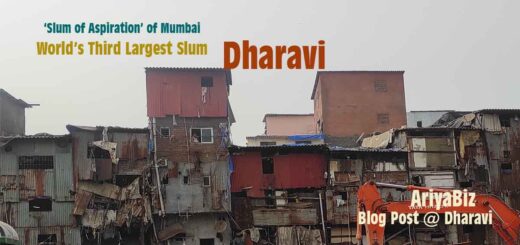Bhutan: Call for entrepreneurs in 2024

What is Bhutan
Welcome Readers in Blog post of ‘Bhutan: Call for entrepreneurs in 2024’! In this blog post we are going discuss about Bhutan, its Geography & Demography, Economy, Opportunities in various Business sectors, and socio-economic problems in this country. Bhutan is still it is still termed as a third world country which is situated between Tibet Autonomous of China and India in the Eastern parts of the Himalayas in South Asia. This country is landlocked country nestled deep in the Himalayas characterized by steep mountains and deep valleys. Still, every district or Dzongkhag in the nation has a Dzong, a distinctive fusion of a fortress and a monastery.
Bhutan a serene place with lush valleys, Rocky Mountains and pristine rivers holds a lot more than what meets the eye. Bhutan is connected to Tibet & China, so this country is politically important from Indian point of view also.
Geography and Demography of Bhutan
To illustrate, the four major regions of Bhutan are the northern, central, eastern, and southern regions.
Major Cities in Bhutan are as follows:
- Thimphu
- Punakha
- Tsirang
- Phuntsholing
- Pemagatshel
- Sarpang
- Wangdue Phodrang
- Samdrup Jongkhar
- Samtse
- Jakar
Economy of Bhutan
Bhutan Currency is Ngultrum & is nearly equivalent to Indian Rupees and countries economy is largely traditional economic system and most production in the industrial sector is of the cottage industry type.
Firstly, one of the world’s smallest economies and relies heavily on agriculture and forestry, which provide the primary means of subsistence for about 60% of the population.
To clarify, agriculture, hydroelectric power, and tourism are the three main sources of income. Undoubtedly, the economy of this country is predominately based on agriculture. Bhutan’s population is primarily engaged in agriculture, about 80%. Wherefore, women who earn a living in the nation make up over 95% of the workforce. In this country raising animals is a crucial aspect of farming. Bhutan has one of the highest per capita incomes in South Asia, at US$3,438.16 (NSB 2017), according to development indicators.
Beside this, Bhutan’s economy has grown rapidly over the past three decades thanks to the hydropower industry. The growth of the gross domestic product (GDP) is predicted to be 4.63.
The border crossing point is in the West Bengali district of Alipurduar on the Indian side. Every day, 600 to 700 trucks typically cross to each side, making it easy for people to move around. With numerous market opportunities nearby, emerging economies, Bhutan is ideally situated.
Bhutan’s top trading partner, accounting for more than 80% of its foreign trade, is particularly India. A free trade agreement for the trade of goods exists between Bhutan and India. Put another way, Bhutan is heavily dependent on India for trade and financial connections. Due to its zero carbon policy, the government is being cautious in its expansion of the tourism industry and only allowing visits from travelers who are concerned about the environment. Today, all villages are connected by roads and electricity and have access to basic services like education, running water, and basic healthcare. Even the most isolated villages have access to the mobile phone service and telecommunications network.
Business opportunities in Bhutan
The Gross National Happiness (GNH) philosophy, which aims to maximize people’s happiness, serves as Bhutan’s development’s compass. The promotion and preservation of culture, environmental preservation, and effective government are all given equal weight in this development model. Bhutan is now a nation with a lower-middle income. Over the past 20 years, Bhutan’s swift economic growth has significantly reduced poverty. Bhutan has quickly developed. Bhutan was cut off from the outside world until the 1950s, and its dispersed rural population relied on subsistence farming.
Recommended Sectors of Business in Bhutan
Bhutan Chamber of Commerce & Industry (BCCI) identifies potential business opportunities across 20 Dzongkhag’s of Bhutan.
The project worked with communities across the 20 Dzongkhags of Bhutan with special features of Bhutan Political stability, Good governance, cheap electricity & English speaking workforce, calls for individuals or entrepreneurs to avail the opportunity of business in Bhutan.
Tourism of Bhutan
There is opportunity in Hospitality industry where there is need of hotels more than 3 star hotels. Bhutan Government introduces new “Sustainable Tourism Development Strategy” for Tourism market in Bhutan which is sustainable in nature guided by the principles of Gross National Happiness.
Hydropower sector of Bhutan
Hydropower production in the valleys is made possible by the plentiful water resources that exist there. Bhutan maintains close economic and strategic ties with India, which serves as both a financial backer and a buyer of surplus hydropower as well as Bhutan’s key trading partner and a source of international assistance. While hydropower has consistently been a source of prosperity, other industries are having trouble because of the challenging investment environment in the country. As a result, outcomes in the areas of service delivery, education, and health have significantly improved.
Renewable Energy in Bhutan
It is said that nation that leads in renewable energy will be the nation that leads the world. The nation’s demand for energy has increased as a result of the country’s economic expansion, rising prosperity, rapid urbanization, and rising per capita energy consumption.
Solar power, Wind power, Biomass power, Hydro power, Geothermal are the main source of electricity worldwide today & this is time of Renewable Energy. And Bhutan is full with natural resources.
Agribusiness of Bhutan
As an example, the golden langur, Bengal tiger, clouded leopard, hispid hare, sloth bear, grey langur, tiger, goral, sparrow, himalayan black bear, red panda, blue sheep, Tibetan wolf, and many other rare primates can be found in Bhutan.
Takin is Bhutan’s national animal. Bhutan has more than 7700 species of birds and more than 5400 species of medicinal plants.
More than 1000 medicinal plants are described in the Bhutan Tourism Monitor 2019, but currently collect only 300 species for daily formulations. These medicinal plants have been one of the drivers of the ‘Gross National Happiness (GNH)’ and bio-discovery projects in Bhutan. Over time, Bhutan offers excellent business opportunities and support due to its rich biodiversity, expansion opportunities, human resource base, and environmental stability.
Opportunities for Businesses in Food Processing
Food processing is a process used to turn raw ingredients into well-cooked, well-preserved foods that can be consumed by both humans and animals.
All the more, raw, clean, harvested crops or butchered, slaughtered animals are used in food processing to create food products for daily consumption. They can be very marketable if manufactured & packaged attractively.
Animal husbandry in Bhutan
Cattle are can be seen in 80% household in rural areas. Along with Cattle nearby 30% Pigs, 23% horses, 15% goats and 2% Yak commonly seen in rural areas. Jersy breeds along with Jatsa & Jatsam are local aritifial insemination varieties. In Bhutan, the most significant livestock genetic resources for food, animal energy, and household income are the local cattle. One of Bhutan’s key aspects of livestock farming is poultry farming it is equally important. In addition to this, Bhutanese artisans and producers of honey, chilies, lemongrass oil, cardamom, ginger powder, turmeric powder, herbal tea, and mushrooms work with medicinal plants and herbal extracts.
Mining Industry in Bhutan
Coupled with, the national economic development of many low- and middle-income countries, which are abundant in non-fuel mineral resources, is significantly influenced by mining. Production of cement, coal, dolomite, gypsum, and limestone dominates mining. Deposits of beryl, copper, graphite, lead, mica, pyrite, tin, tungsten, and zinc were among the resources that were known to exist. One of Bhutan’s industries with the fastest rate of expansion is mining, which annually brings in an average of 54 million US dollars or 3% of the nation’s GDP.
Rural Area Development of Bhutan
The economic activities are mostly concentrated in urban centers, and one was to create ample business opportunities in rural areas. Growth of rural area is very much important for social economic development of Bhutan along with urban area. Growing health-oriented gummy candies, the idea will capitalize on the growing gummy candy market in the country. According to the World Bank, Bhutan has managed an annual average economic growth of over 7% in the past decade. Bhutan can be Asians emerging economy as per per Asian Development Bank.
IT sector
There is huge demand in various fields of system integration, consulting services, and technology-enabled business technology services. There is demand of IT vendors who follows international best practices and have adopted several global quality certification standards, making cost-efficient technology for global clients and opening new industry verticals in the various fields.
Electronic waste recycling plant
Today rapid innovations are keeps going. Despite this, field of technology is developing quickly. Innovations have made it possible for consumers to connect more and more. There will be a chance for an electronic waste recycling facility in a developing nation. Every day, Bhutan produces 7.02 metric tonnes (MT) of plastics, including High-Density Polyethylene (HDPE) and Polyethylene Terephthalate (PET). In a year, it accounts for 2,562MT. There is potential to begin turning hard plastic back into flower pots.
Biotechnology
In Biotechnology there are various fields like:
Bio-pharma: –It includes proteins, drugs, and antibodies that are mainly used in the diagnostics and therapeutics field.
Bio-industrial field: – it deals with products such as yeast, yeast-based products, organic amino acids, and enzymes.
Bio-Agri: –It consists of the products bio-pesticides, bio-fertilizers, and genetically improved seeds.
Plant genetic engineering and biotechnology, with particular reference to food and nutrition, could play a major role in the agriculture scenario despite initial obstacles.
Textile- Readymade garment
Global textile and apparel industry is going through a drastic shift from cotton to synthetic and Bhutan can grasp this opportunity.
Handicrafts
Categories of handicraft products approved for the brand ‘MADE IN BHUTAN’ are traditional contemporary Bhutanese crafts.
Limitations for Bhutanese business development
- Limited geographical connectivity with global market
- Small domestic market
- Low level of technological competiveness
- Limited access to finance
- Lack of skills
- Deficiencies in transport & logistic management
- Bhutan geography always affected by natural disasters & climate change.
Ease of Doing Business in Bhutan
According to the most recent World Bank annual ratings, Bhutan is ranked 89th out of 190 economies in terms of how easy it is to do business there. Bhutan’s ranking dropped from 81 to 89 in 2019 from 81 in 2018. In Ease of Doing Business 2020, India placed 63rd out of the 190 countries that were chosen.
Now days the Bhutanese government has launched various initiatives to encourage entrepreneurship. Ministry of Labor and Human Resources (MoLHR) promotes entrepreneurship and encourage the youth to consider self-employment.
Conclusion
Bhutan is doing tremendous progress by reducing extreme poverty and promoting gender equality, with continuing efforts to address social inequality issues and regional disparities. Entrepreneurship is now going to be backbone of a country. Entrepreneurship creates job opportunities, and improves the economy. Bhutan has primarily put all the eggs in one major basket but as development increases that will be impact on production, livelihoods and worker earnings. It is necessary requiring to expansion and upgrading of the transport network, Trade facilitation, International trade fairs and exhibitions, Artisan support, Education & Awareness, Product innovation as well as increase of technical capacity of skilled labor & this value addition helps to generate business opportunities for locals.
Enjoy Bhutan.
Just like, share & comment our blogs & don’t forget to affiliate with us for your developing business growth with AriyaBiz.com.
Just like, share & comment our blogs & don’t forget to affiliate with us for your developing business growth with AriyaBiz.com.
Keep Reading! Thank you.
You may like
Corporate Gifting ethics of Giving in business
Mental Maths: Glimpses of Mathematics
Corporate Gifting Product Ideas



